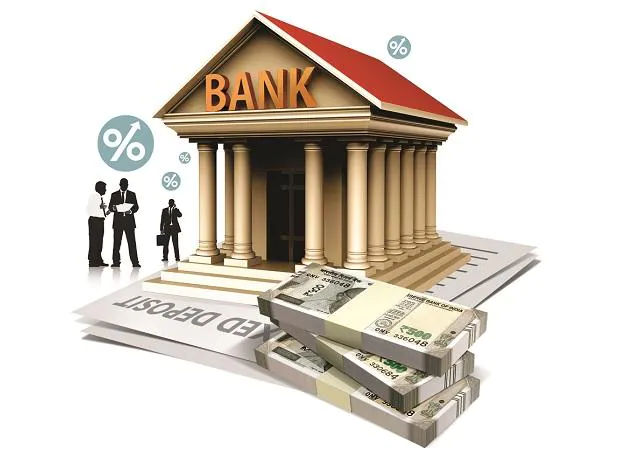[ad_1]
The rise in one-year median marginal cost of fund-based lending rate (MCLR) of commercial banks moderated to 10 basis points (bps) in August from a hike of 15 bps in July. It has risen 40 bps since June.
This comes on the back of the Reserve Bank of India (RBI) raising the repo rate by 140 bps to 5.4 per cent in the current tightening cycle.
Anil Gupta, co-group head, financial sector ratings at ICRA, said banks will be calibrated in revising the MCLR, as they have to be competitive vis a vis other sources of borrowings, i.e. bonds and external commercial borrowings. Also, they have leeway in passing on cost of funds to borrowers.
Bankers, too, indicated that the MCLR would continue to rise but not to the extent of the increase in the policy rate. Besides, much of the MCLR-linked lending is to corporate houses, which have access to other sources of funding, the bankers pointed out, explaining the reason for the moderation in the MCLR hike in August.
Thus far in financial year 2022-23 (FY23), the one-year median MCLR for commercial banks has risen by 40 bps from 7.25 per cent in April to 7.65 per cent in August, according to data from the RBI.
The current MCLR rates are still lower than the rates that prevailed in the previous monetary tightening cycle of 2018, when they had moved from 8.3 per cent in February 2018 to 8.8 per cent in January 2019.
Also read: ICICI Bank, Bandhan Bank, Karnataka Bank increase MCLR across tenors
This was done in anticipation of rate hikes by the RBI, which had increased the policy repo rate by 25 bps to 6.25 per cent in June 2018, then again by 25 bps to 6.5 per cent in August 2018.
The current increase in the MCLR is a reflection of banks passing on the rise in cost of funds to borrowers, especially after the RBI raised the repo rate by 40 bps in May in an off-cycle policy review.
Different pace
Among the banking groups, foreign banks raised the one-year MCLR by 90 bps in the five-month period from 6.10 per cent in April to 7 per cent in August.
The pace was moderate for public sector banks, with median one-year MCLR rising by 40 bps to 7.65 per cent in August, from 7.25 per cent in April. For private sector banks, the median rise was just 20 bps in the period at 7.53 per cent in August.
While lending rates rose by 25 bps in the April-July period, the domestic term deposit rates rose only 19 bps from 5.03 per cent in April to 5.22 per cent in July. Since deposit rates rise with a lag, banks are still in a position to absorb some increase in the cost of funds.
In the 2018 cycle, the weighted average domestic term deposit rates grew from 6.54 per cent in January 2018 to 6.91 per cent in January 2019.
Prakash Agarwal, director and head – financial institutions, India Ratings, said term deposit rates will continue to rise, but banks will be circumspect in raising them. Those with weaker deposit franchise and lower share of Current Account and Savings Account (CASA) may have to offer higher rates to attract funds.
In the current cycle, foreign banks have marched ahead of their public and private sector rivals in terms of raising interest rates. Their weighted average domestic term deposit rates rose by 67 bps from 3.42 per cent in April to 4.09 per cent in July. State-owned banks hiked their term deposit rates by 16 bps to 5.27 per cent, and private lenders by 17 bps to 5.3 per cent, the RBI data showed.
|
|
||||
|
Months |
Public sector |
Private sector |
Foreign banks |
All banks |
|
January |
7.25 |
8.15 |
6.05 |
7.25 |
|
February |
7.25 |
8.22 |
6.05 |
7.2 |
|
March |
7.25 |
8.35 |
6.17 |
7.25 |
|
April |
7.25 |
8.33 |
6.1 |
7.25 |
|
May |
7.35 |
8.35 |
6.05 |
7.25 |
|
June |
7.43 |
8.35 |
6.6 |
7.4 |
|
July |
7.55 |
8.5 |
6.91 |
7.55 |
|
August |
7.65 |
8.53 |
7 |
7.65 |
|
Source – RBI |
||||
[ad_2]
Source link



